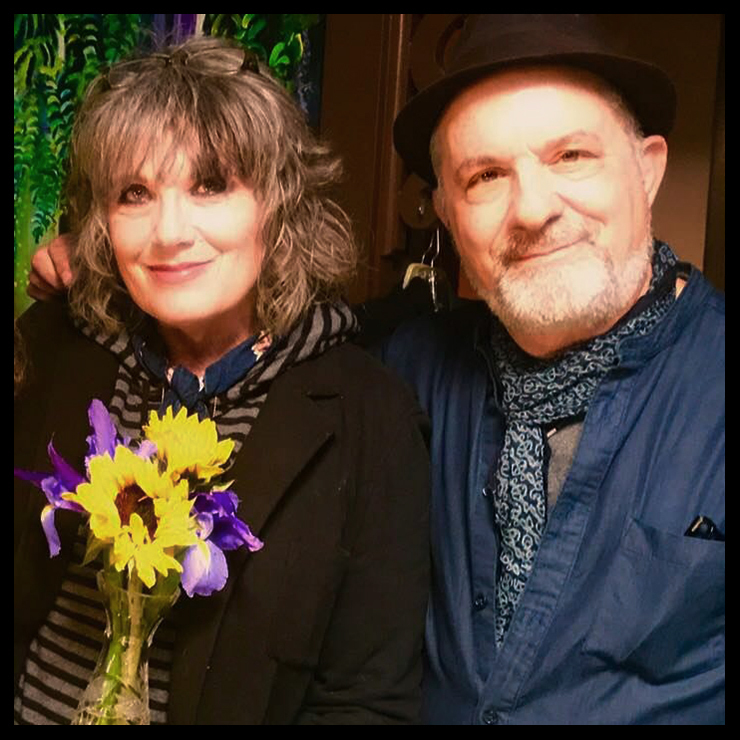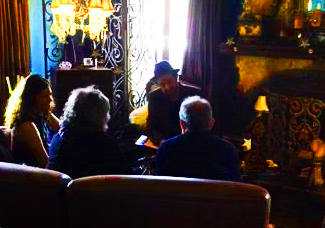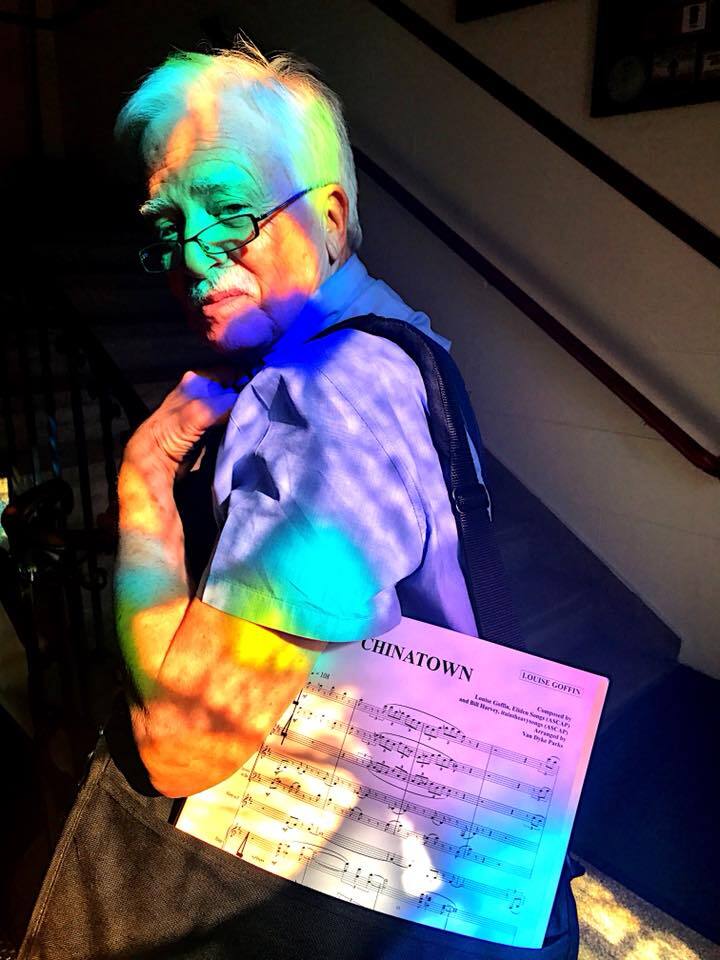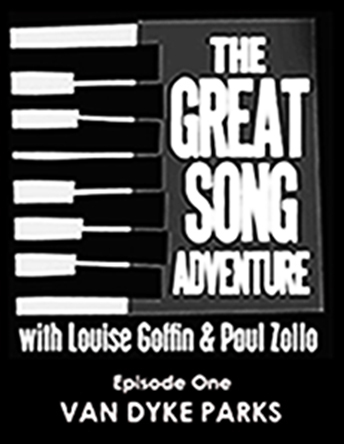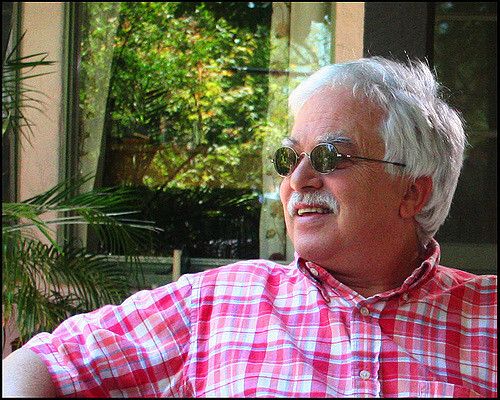 Episodes
Episodes
Episode 3. Danny Kortchmar, aka Kootch
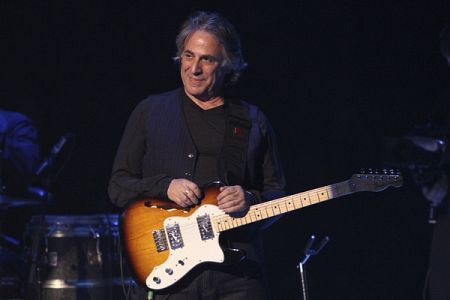
The Great Song Adventure is proud to present a conversation with the legendary Kootch. Danny Kortchmar. Guitarist, producer, songwriter and more, he’s both a great musician and a tremendously impactful one, having provided his distinctive musicianship to countless landmark albums. These include Sweet Baby James by James Taylor and Tapestry by Carole King, as well as classic records by Jackson Browne, Linda Ronstadt, Harry Nilsson, Warren Zevon and more.
In fact, he’s so legendary as the guitarist on these landmark albums that people often overlook how many great songs he’s written. But there’s many famous ones, including “Honey Don’t Leave L.A.,” recorded by James Taylor, “Sunset Grill,” written with and recorded by Don Henley, “All She Wants To Do Is Dance” and “Dirty Laundry,” also recorded by Henley, “Somebody’s Baby,” recorded by Jackson Browne and “Tender Is The Night,” written with Jackson and Russ Kunkel, and recorded by Jackson.
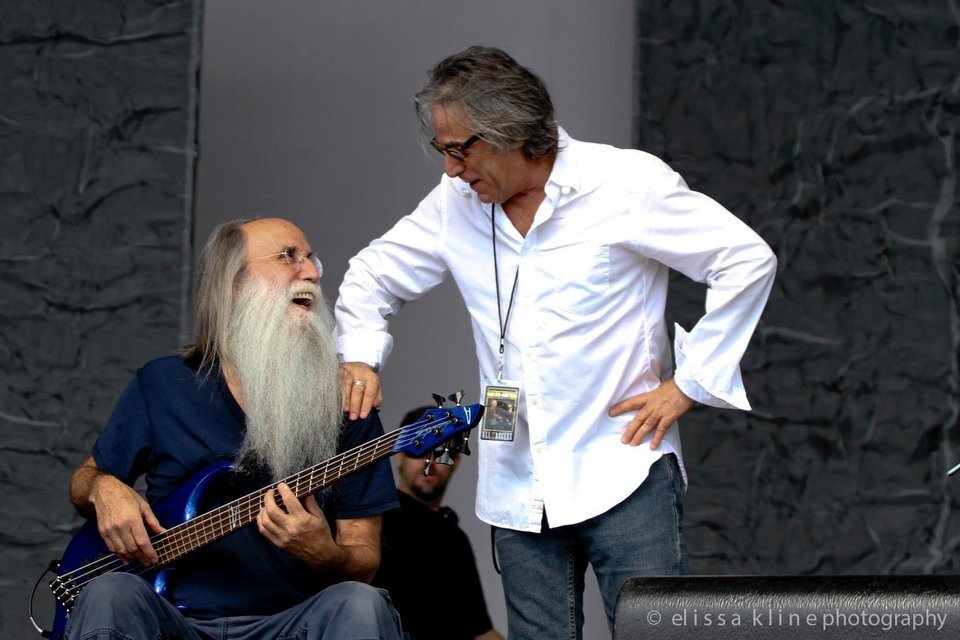
Born in New York, he spent summers with his family at Martha’s Vineyard. He met James Taylor there when they were in their teens, and they formed the band Flying Machine, playing songs James wrote and some they wrote together, such as “Night Owl” and “Knocking Round The Zoo.”
He became a valued sideman, playing on a wide range of albums. He knew Peter Asher from his days in the duo Peter & Gordon, and when Asher went to Apple, Danny suggested he consider his friend James Taylor for a record deal. Asher agreed, and James was the first and only American artist signed to Apple. Asher produced the first self-titled album, featuring much guitar playing by Kooch. When Apple folded, they all came to Los Angeles, where James signed with Warner Brothers and made Sweet Baby James, featuring “Fire and Rain.” In that song is a reference to their origins: “Sweet dreams and flying machines in pieces on the ground.”
In 1967, he joined the Fugs. When they broke up, he followed Fugs bassist Charles Larkey to the West Coast, and with Carole King formed a band called The City, with whom he made the 1968 album Now That Everything’s Been Said. When that failed to fly, he kept working with Carole,on her debut album and on Tapestry, her second album.
When Asher began producing, he enlisted Kootch and a studio band which became known as the The Section. As discussed in our interview, they were a remarkably tight, rock-solid musical unit ideal for any song – be it a tender ballad or a rocker. The Section was Leland Sklar on bass, Russ Kunkel on drums and Kootch. On James Taylor’s albums as well as her own, Carole King was the pianist/keyboardist. When she was not there, Craig Doerge took over.
Presently he’s making records and touring with an ensemble called Danny Kortchmar and Immediate Family, featuring Russ Kunkel, Lee Sklar, Waddy Wachtel, Steve Postell and Jim Cox. He just released an album with them called Honey Don’t Leave L.A., and has embarked on a mighty tour. They’re heading to Japan – playing Billboard Live in Osaka on June 14 and elsewhere.
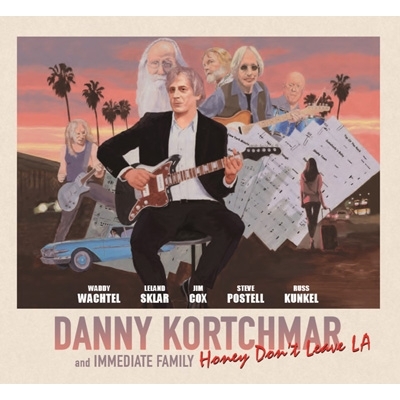
EPISODE 3:
Danny Kortchmaraka KOOTCH
The Great Song Adventure is proud to present a conversation with the legendary Kootch. Danny Kortchmar. Guitarist, producer, songwriter and more, he’s both a great musician and a tremendously impactful one, having provided his distinctive musicianship to countless landmark albums. These include Sweet Baby James by James Taylor and Tapestry by Carole King, as well as classic records by Jackson Browne, Linda Ronstadt, Harry Nilsson, Warren Zevon and more. In fact, he’s so legendary as the guitarist on these landmark albums that people often overlook how many great songs he’s written. But there’s many famous ones, including “Honey Don’t Leave L.A.,” recorded by James Taylor, “Sunset Grill,” written with and recorded by Don Henley, “All She Wants To Do Is Dance” and “Dirty Laundry,” also recorded by Henley, “Somebody’s Baby,” recorded by Jackson Browne and “Tender Is The Night,” written with Jackson and Russ Kunkel, and recorded by Jackson.
Born in New York, he spent summers with his family at Martha’s Vineyard. He met James Taylor there when they were in their teens, and they formed the band Flying Machine, playing songs James wrote and some they wrote together, such as “Night Owl” and “Knocking Round The Zoo.” He became a valued sideman, playing on a wide range of albums. He knew Peter Asher from his days in the duo Peter & Gordon, and when Asher went to Apple, Danny suggested he consider his friend James Taylor for a record deal. Asher agreed, and James was the first and only American artist signed to Apple. Asher produced the first self-titled album, featuring much guitar playing by Kooch. When Apple folded, they all came to Los Angeles, where James signed with Warner Brothers and made Sweet Baby James, featuring “Fire and Rain.” In that song is a reference to their origins: “Sweet dreams and flying machines in pieces on the ground.” In 1967, he joined the Fugs. When they broke up, he followed Fugs bassist Charles Larkey to the West Coast, and with Carole King formed a band called The City, with whom he made the 1968 album Now That Everything’s Been Said. When that failed to fly, he kept working with Carole,on her debut album and on Tapestry, her second album.
When Asher began producing, he enlisted Kootch and a studio band which became known as the The Section. As discussed in our interview, they were a remarkably tight, rock-solid musical unit ideal for any song – be it a tender ballad or a rocker. The Section was Leland Sklar on bass, Russ Kunkel on drums and Kootch. On James Taylor’s albums as well as her own, Carole King was the pianist/keyboardist. When she was not there, Craig Doerge took over.
Presently he’s making records and touring with an ensemble called Danny Kortchmar and Immediate Family, featuring Russ Kunkel, Lee Sklar, Waddy Wachtel, Steve Postell and Jim Cox. He just released an album with them called Honey Don’t Leave L.A., and has embarked on a mighty tour. They’re heading to Japan – playing Billboard Live in Osaka on June 14 and elsewhere.

